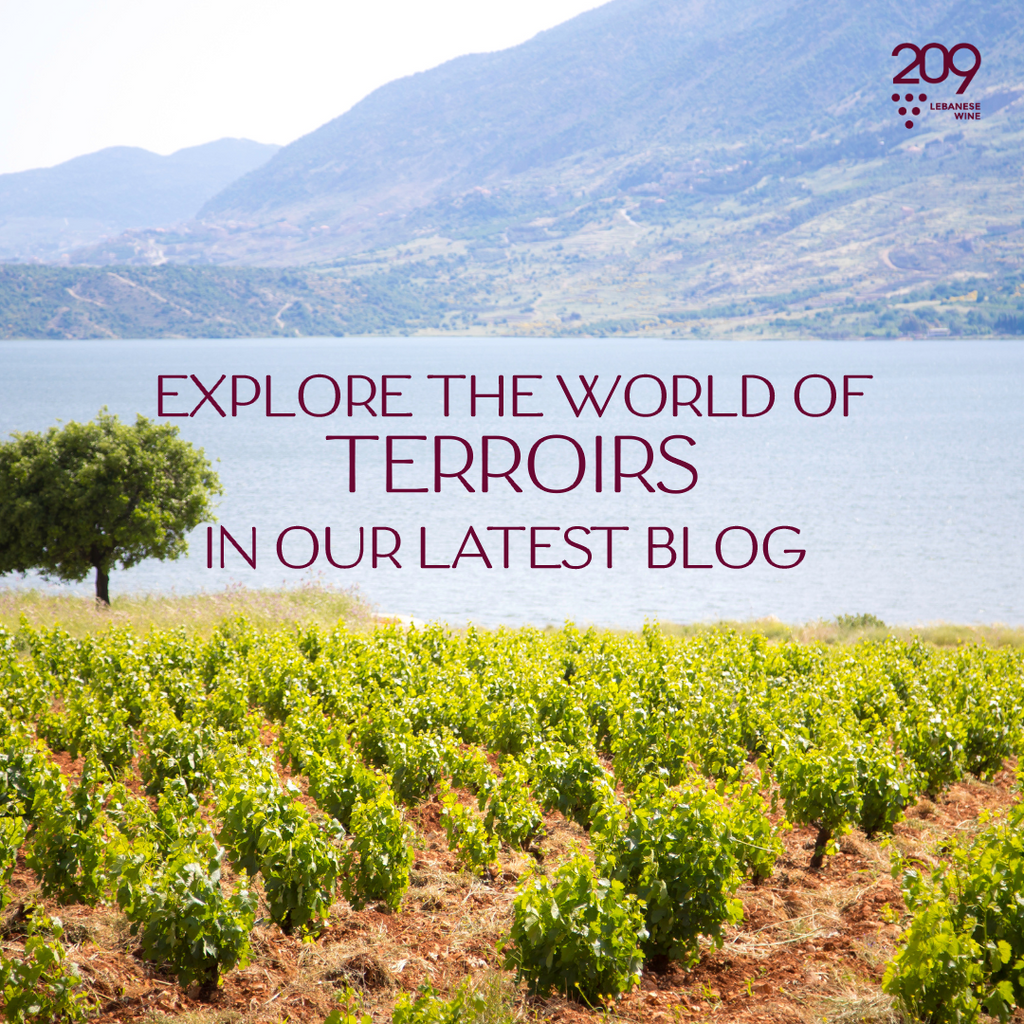Exploring Lebanese Wines' Rich Tapestry of Terroir Varieties!

Wine consumers frequently marvel at the distinct tastes and aromas that different types of wine can provide. However, many people are unaware that a substantial amount of these traits stem from a notion that is tightly entwined with the land and climate: terroir.
This blog will serve as a beginner's guide to Lebanese terroirs and introduce it to the variety of terroirs that Lebanon possesses. Terroir, a French term with no exact translation, refers to the unique combination of characteristics that determine the character of a wine, such as soil, climate, geography, and human interaction.
Lebanon is one area where terroir plays a crucial role in producing great wines. Lebanon, with its variety of landscapes and temperatures, has an intriguing range of terroir types that contribute to the production of exceptional and world-renowned wines.
Understanding Terroir
Terroir is defined as the notion that a single location, with its separate geological and climatic features, offers unique flavors to the grapes cultivated there. For centuries, this principle has been profoundly established in winemaking traditions, establishing how vineyards are cultivated and wines developed. Terroir is comprised of numerous vital ingredients, each of which plays a major role in the final flavor character of the wine.
Soil and Climate
The mineral appearance, drainage, and overall health of grapes are all affected by the soil type in a vineyard. Diverse soil types, such as limestone, clay, or schist, provide unique qualities to the grapes, affecting the taste and structure of the wine. The temperature, rainfall, and direct sunlight exposure that the vines are subjected to are determined by the climate of their location. These elements influence the ripening process, acidity levels, and sugar content of the grapes, all of which influence the taste, balance, and harmony of the wine.
Geography with Human Interaction
The vineyard's elevation, slope, and direction to the sun all affect solar exposure and air circulation. This influences grape growth, which leads to differences in taste richness as well as intensity, and grape health. Winemakers' practices and procedures, which include vineyard management, harvest duration, and fermenting procedures, all shape the presentation of terroir in the final wine.
Terroir Diversity in Lebanon
Lebanon's diversified landscape, nestled between the Mediterranean Sea and the Middle Eastern mountains, produces an assortment of terroir possibilities. This little country, known as the "Switzerland of the Middle East," has a broad range of microclimates and soil types, making it a treasure trove for winemakers aiming at creating unique types of wines.
Bekaa Valley
The Bekaa Valley, a sun-drenched valley surrounded by the Anti-Lebanon and Lebanon ranges of mountains, is at the core of Lebanese winemaking. The valley's unique blend of high altitude, fertile soils, and sunny days followed by chilly nights is ideal for cultivating a wide range of grapes. The geography of the Bekaa Valley, for instance, favors the famed Château Musar, which produces red wines with outstanding age potential along with complex flavors.
Mount Lebanon
Vineyards prosper from the higher altitudes and milder weather along Mount Lebanon's slopes. Such conditions are great for generating white wines with vivid fruit flavors and sharp acidity. Château Ksara, for example, has used this terroir variation to create refreshing and aromatic whites.
Coastal Influence
Due to Lebanon's proximity to the Mediterranean Sea, numerous vineyards, notably those in the Batroun and Jezzine areas, have a coastal influence. Temperatures are moderated by the sea air, allowing for prolonged grape ripening as well as greater acidity. This terroir variety leads to wines with a distinct coastal character, featuring saline notes that represent their closeness to the sea.
Closeness to Cultural Heritage
Lebanese winemakers frequently incorporate their rich cultural background into their winemaking processes, contributing to the terroir's depth. Many employ old techniques of fermenting, like clay amphorae, to relate their wines to their predecessors' traditions.
Ancient Winemaking Traditions
Lebanon has an extensive heritage of winemaking dating back thousands of years. The nation is sometimes referred to as the "cradle of wine" as a result of its historical significance in the development of viticulture. Wine has been produced in this region for over 6,000 years, according to archaeological data. This long-standing custom lends another depth of nuance to the terroir of Lebanese wines. The skills and procedures passed down through generations add to the wines' distinct character, linking them to their historical and cultural roots.
Native Grape Varieties
Lebanon is home to a number of indigenous grape varieties that have adapted to the region's different terroirs. These grape types have developed over time to survive in the unique circumstances of various microclimates. For instance, the dry conditions of the Bekaa Valley favor the red grape variety Obeidi, which produces wines with a particular flavor that represents the terroir. Merwah, also known as Marawi, a white grape variety, has a long history in Lebanon and contributes to the creation of crisp and fragrant white wines.
Global Recognition
Lebanese wines have received worldwide recognition for their outstanding craftsmanship and distinct taste characteristics. The unique communication of Lebanon's terroirs, along with the passion of its winemakers, has resulted in wines that stand out on the global scene. Lebanese wineries are being recognized for their ability to harness the potential of their unique terroirs and make wines that capture the palates of wine connoisseurs worldwide.
Cultural Fusion in Wine
Lebanon's history as a cultural crossroads is reflected in its winemaking. The wines produced reflect the country's several cultural heritages, resulting in a convergence of tastes and styles that enriches the concept of terroir. Lebanese wines frequently exhibit a balanced combination of Old-World winemaking traditions and current innovation, producing wines that pay attention to the past while looking forward to the future.
Lebanon's history, landscape, and temperatures have resulted in varied terroirs, which have shaped distinctive wines. Lebanese wines are complex due to the combination of soil, climate, geography, and winemaking. Each sip uncovers Lebanon's terroir, whether it's the deep reds of Bekaa Valley, the crisp whites of Mount Lebanon, or the coastal-influenced Batroun wines, remembering the ancient relationship between land and glass as you sip Lebanese wine is inevitable.

